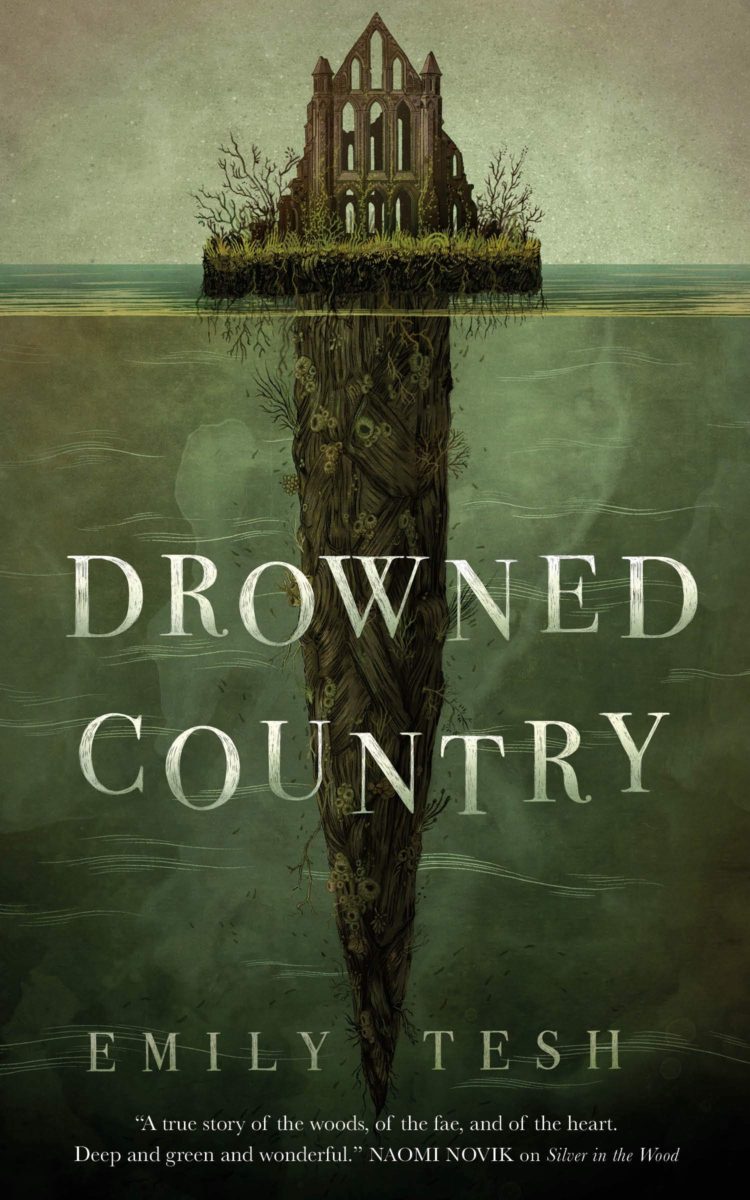Emily Tesh has done it again. She’s taken old and frankly overused staples of the Western/English canon and imbued them with new vigor and fresh surprises. Fairies? Vampires? Why not both together, each in a new and mutually illuminating way? It’s madness, and it works. It works magnificently. Drowned Country is even more of a triumph than its stellar predecessor.

Silver in the Wood was lovely and frightening in equal measure, and its new-bloom romance was exceptionally sweet. Here in Drowned Country, there is even more loveliness and terror to be had, and the romance has fruited into something sadly hard and sour. Tobias and Henry have had a falling-out, and the story begins with Henry having an enormous wallow. Tobias, on the other hand, has been keeping busy: there’s no shortage of the supernatural afflicting England, and he and Mrs. Silver are committed to protecting the innocent. Henry is mourning his innocence, among other things, but his mother refuses to let him dwell any longer on his transition from eager young folklorist to Green Man of the Hallow Wood. She needs both Henry and Tobias to deal with her current case, that of a missing young woman. And if the two of them should be forced to talk about their issues…well, that wouldn’t hurt.
It’s great to read queer romances, and it’s even better to read complex queer romances. Queer readers definitely deserve all the good stuff, the first loves and ideal partners and perfect romances, and to not get killed off in the process of having them. But when queer characters are allowed to have the full range of relationships like straight characters are, and still not get killed in the process, that’s what really makes me think things are going in the right direction.
Not that I wasn’t terribly sad to see these particular characters driven apart. Shy Tobias and excitable Henry clearly still have a lot of unresolved feelings, but vampires don’t really wait for you to resolve those. They snatch young ladies like Maud Lindhurst on their own schedule. And fairies wreak havoc with the very idea of schedules and time itself.
I’d not previously considered vampires and fairies to have much in common, but Tesh has drawn some interesting parallels by exploring each entity’s parasitic nature. Vampires abduct and entrance their victims, and tend to both be very attractive and go after attractive prey. Fairies are really quite similar, also abducting attractive young people and befuddling them. In many legends, the victims of both creatures momentarily enjoy being prey, but when returned to their lives experience loss and weakness. There’s also the element of time: vampires and fairies are nigh-on immortal, and can grant immortality to others. One of the major differences is that vampires are usually doleful and solitary, whereas fairies are gleeful envoys of a larger society. But what if, Tesh asks, the fairies are just as sad and lonely as any skulking bloodsucker? Vampires need humans for basic sustenance—what if fairies need humans just as much?
It’s intriguing in the abstract, and even more interesting as it plays out over the course of Drowned Country. Despite their considerable powers, Henry and Tobias might be outmatched. Fortunately, casually badass Maud and relentless Mrs. Adela Silver make up the secondary cast, providing much-needed support. Their antics also force Tobias and Henry to spend time together once again. But they’re more than plot devices. Each woman is richly realized, and could easily be the star of her own novella.
The places, too, are so solid and real that they could almost be characters. The Wood is certainly an entity with strong opinions, and the new and terrible place our heroes discover is reminiscent of T. Kingfisher’s The Twisted Ones, and very nearly as frightening. (I don’t mean to compare Drowned Country unfavorably; the goals of their narratives are very different, and Tesh’s novella is decidedly not pure horror.)
The places, the people, and the creatures: everything in Drowned Country is fascinating and dynamic, and everything works together to make a magnificent novella. I can’t wait to see what happens to Maud, Mrs. Silver, Tobias, and Henry—and any and all new characters Tesh dreams up—next.
Drowned Country will be out August 18th.
